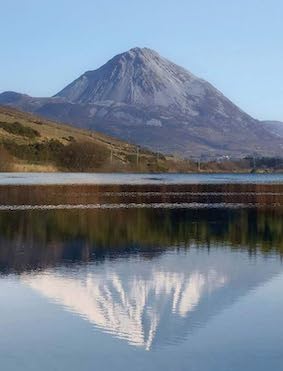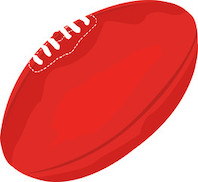Francis Harvey (13 April 1925 – 7 November 2014) was an Irish poet born in Belmore Street, Enniskillen in 1925. His Catholic mother eloped with his Protestant father Hamilton Harvey, who died when the young Frank Harvey was only six. His mother was from Ballyshannon in Donegal and she moved back there. Frank stayed on and completed his secondary education in Enniskillen. He went to University College, Dublin, where he studied medicine for a year. As his family needed him to be working, he went into the bank, which took him around Ireland, but mostly he was stationed in Donegal.
His first poem, about potato-digging, was published when he was 16, in the Weekly Independent. Subsequently he published several short stories and had a number of his plays produced on stage and radio. His prize-winning play, Farewell to Every White Cascade, was broadcast on RTÉ in the 1960s and thereafter on the BBC and numerous radio stations around the world. He describes his introduction to writing: What made a writer of me really was I became a member of the library in the town I was born, in Enniskillen, the Carnegie Library, and I discovered Dickens and I discovered Thackeray. I discovered D.H. Lawrence and umpteen others. I began to read.
In the mid-1970s he left fiction and playwriting behind him and concentrated on poetry. His first collection, In the Light on the Stones, was published by Gallery Press in 1978. The following year he took early retirement from the Bank of Ireland where he was an assistant manager. Gallery Press also published his next collection, The Rainmakers (1988) while Dedalus published his four subsequent collections, The Boa Island Janus (1996), Making Space (2001) , Collected Poems (2007) and Donegal Haiku (2013).
His poem, Heron, won the 1989 Guardian and World Wildlife Fund poetry competition when Ted Hughes was judge. His work has also featured in publications such as The Spectator and The Irish Times. In the 1970s he won The Irish Times/Yeats Summer School prize. In 1990 he won a Peterloo Poets Prize and was a prizewinner in the Cardiff International Poetry Competition.
Francis Harvey died on 7th November 2014 at the age of 89.

DONEGAL HAIKU
Irish haiku, as I argue in my Dangerous Pavements post, with some assistance from Anatoly Kudryavitsky, editor of Shamrock Haiku Journal, is a distinctive form of haiku. While some poets, such as Seamus Heaney and Michael Longley, have used the form fitfully, others, such as Paul Muldoon, have, in a ludic, almost ludicrous fashion, moulded it to their own playful applications. And then there is the sense of place. Many of the practitioners have composed haiku sequences devoted to particularly Irish locales: these include Michael Hartnett with his Inchicore Haiku, (Raven Arts Press, 1985); Pat Boran with his Waveforms: Bull Island Haiku (Dedalus Press, 2015); and, of course, Francis Harvey. In his case this involves a heightened awareness of the flora and fauna of his native Donegal. There are, as can be seen in the poems below, sheep, dogs, cuckoos, blackbirds, crows, butterflies, flowers, mountains, strands, lakes and Mount Errigal, all as peculiarly Irish and as peculiarly local as the wind and the rain mentioned in the concluding haiku below.
Donegal Haiku is a collection of 122 haikus opening and closing with a single haiku on single pages while the rest of the book features three haikus arranged on each of sixty page spreads. The cover, designed and photographed by Francis Harvey’s daughter, Esther, depicts Mount Errigal in Donegal with an upturned image of Mount Fuji in Japan reflected in the water. (See image right.) The congruence between the Irish landscape and the Japanese form is explicitly acknowledged in the first haiku below.
Fellow Donegal poet Moya Cannon, in her introduction to his Collected Poems, describes Harvey as a “Bashō-like figure”. But there are distinct differences. While Bashō travelled widely and wrote of his travels, Harvey remained rooted to Donegal and its landscape. I love the landscape of Donegal …landscape does something for me. It turns me on…I’m more at home in the middle of a bog than I would be in the middle of a city … And I love looking at the shape of the land and the contours, sometimes the lovely sensuous contours that land has, like a human body …. a haunch or a breast …. I love that, and I like the roughnesses in the landscape in Donegal too … I need roughness, I need wildness. While there is some humour in Bashō’s work, the type of mordant humour found in the haiku of Francis Harvey reminds me more of the work of Kobayashi Issa. And there are, to the best of my knowledge, no frogs, Bashō-like or otherwise, in his poetry. Moya Canon is on surer ground when she compares his poems, rightly in my opinion, with the work of Scottish poet Norman MacCaig and Welsh poet R. S. Thomas.

IRISH POETS ON FRANCIS HARVEY
Brendan Kennelly: There is throughout a concern for craft and conciseness. The poems are, on the whole, lucid and warmhearted. There is an admirable variety of technique and theme. Above all there is the sense that the poet is content to explore his own world in all its limitation and potential. It is this note of quiet, unruffled integrity that makes the poetry of Francis Harvey such a pleasant reading experience.
Eamon Grennan: The poems of Francis Harvey lodge us deep inside a rural (south Donegal) landscape, the overlapping emotional and physical maps of which Harvey knows with startling, at times corrosive, intimacy. In the rinsed light of his minute observations a world is brought to vivid life, animated by compassion, understanding, and a tough grace of observation.
Moya Cannon: Francis Harvey has done for Donegal and, by extension, for the west of Ireland, what Norman McCaig (sic) did for Scotland and what R. S. Thomas did for Wales. He has accorded the landscapes of South Donegal and the people who have lived in them a dignity which has been stripped away as much, almost, by tourism as by earlier forms of invasion. This he has achieved with a naturalist’s passion for precision and with an utter lack of sentimentality …. Francis Harvey’s work combines the passion for precision of a naturalist and the yearning for grace of a poet, except for the fact that a passion for precision, for naming, is also part of the bedrock of poetry. In [his] poems there is a vivid sense of how we are all moving, “free but tethered, through time’s inexorable weathers.”
Nessa O’Mahony: The poetry book that I got greatest pleasure from in 2007 was the Collected Poems of Francis Harvey. Harvey is the ultimate landscape artist of Irish poetry; to read his poetry is to get a sense of a man growing up and becoming assimilated into nature, in particular the nature of West Donegal where he lives. The poems are full of precise, loving but utterly unsentimental description of this harsh country in which one manages to survive rather than thrive. Harvey has an uncanny ability to empathise with his subjects and to show that innate beauty and misery are intertwined in the solitary lives he depicts.

Brief Poems by Francis Harvey
Sleeping, I think of
Errigal and Mount Fuji,
The shape of my dreams.
***
A butterfly sways
on a pink dunghill flower.
The beauty of roots.
***
Who prays at the graves
of the unbaptised children?
A sheep on its knees.
***
Something on my mind
and on the mountain I climb.
The weight of two clouds.
***
Not a breath of wind.
The vanity of clouds
in the lake’s mirror.
***
Woodhill. The cuckoo
calls and, more than the wind,
is holding its breath.
***
What did he taste when
he kissed the island girl’s lips?
The sweetness of salt.
***
Tell me who waits for
the lightening to strike more than
once in the same place.
***
Not a breath of wind.
The vanity of clouds
in the lake’s mirror.
***
The bluebells blossom.
A blackbird sings in the grove.
Swallows and poems.
***
You planted a tree.
I wrote a poem. What more
could anyone do?
***
Myself and two crows
by a frozen lake, silent.
Who will break the ice?
***
Myself and my dog
skirt a mountain to avoid
a man and his dog.
***
I watched him that day
take his last walk on the strand.
The tide was ebbing.
***
He was so obsessed
with death he began sending
mass cards to himself.
***
Five crows in a tree.
The wind ruffles their feathers.
The leaves of my book.
***
Snow on the mountain.
Crowsfeet and your first white hair.
The end of autumn.
***
The wind and the rain.
The wind and the rain again
and again. Ireland.
***
These brief poems are from Donegal Haiku published by Dedalus Press (2013). The cover design (and the colour image used on this page) are by the daughter of Francis Harvey, Esther.

LINKS
The Dedalus Press page for Donegal Haiku
The Dedalus Press page for Collected Poems
Kathleen McCracken reviews The Boa Island Janus (Dedalus Press, 1996) for The Poetry Ireland Review
Macdara Woods reviews Making Space: New and Selected Poems (Dedalus Press, 2001) for The Poetry Ireland Review
Hugh McFadden reviews Collected Poems (Dedalus Press, 2001) for Books Ireland
Tom Hubbard reviews Collected Poems (Dedalus Press, 2007) for The Poetry Ireland Review
Donna L. Potts reviews Donegal Haiku (Dedalus Press, 2013) for New Hibernia Review
This Landscape’s Fierce Embrace: The Poetry of Francis Harvey, Edited by Donna L. Potts
An article on Francis Harvey in The Irish Times
A radio documentary commissioned by RTÉ lyric fm’s The Lyric Feature (first broadcast in 2014)
Australian Broadcasting Corporation documentary on Francis Harvey
The cover design of Donegal Haiku , published by Dedalus Press (2013), and the colour image used on this page, are both by the daughter of Francis Harvey, Esther.







